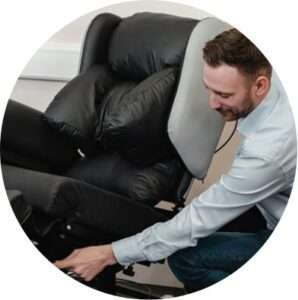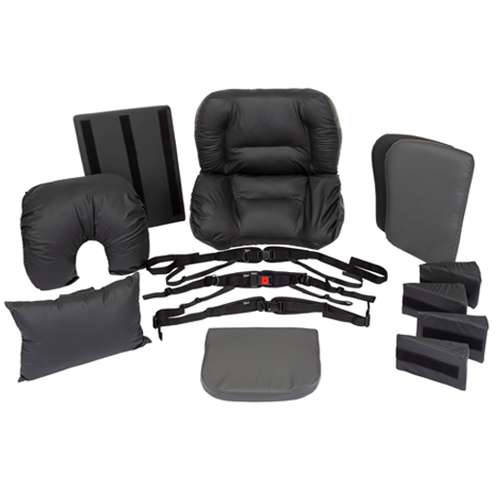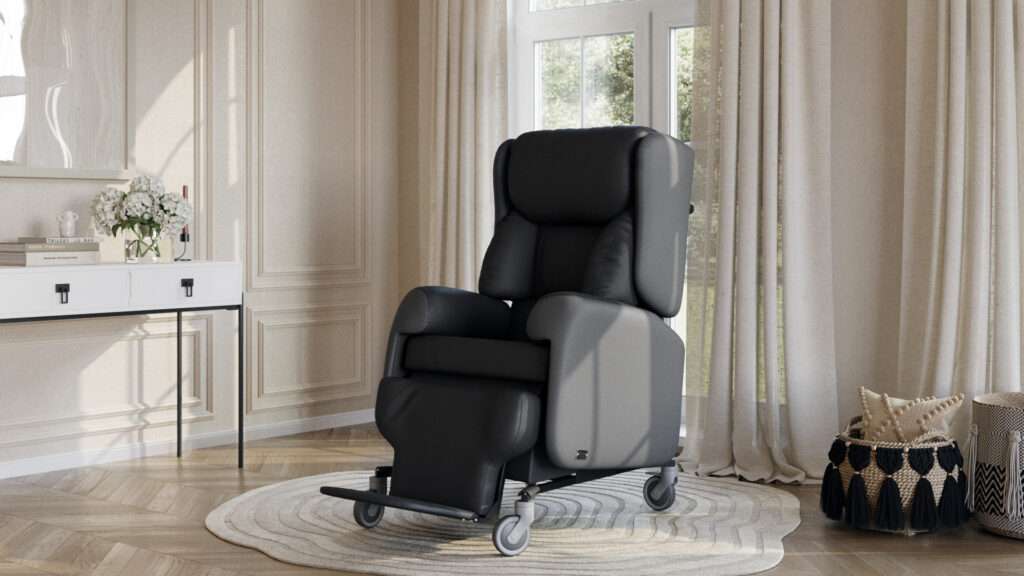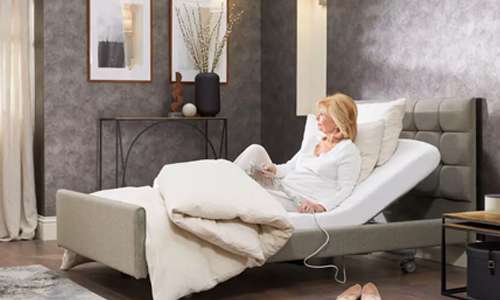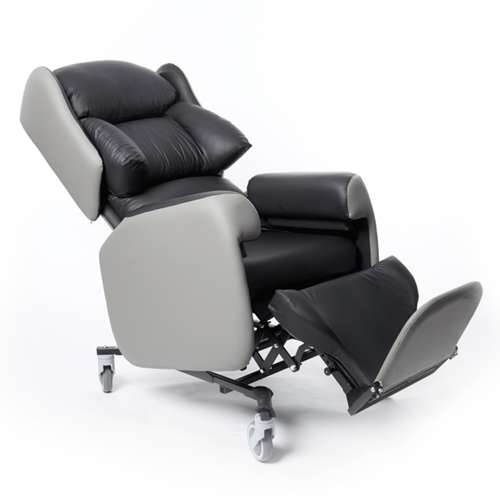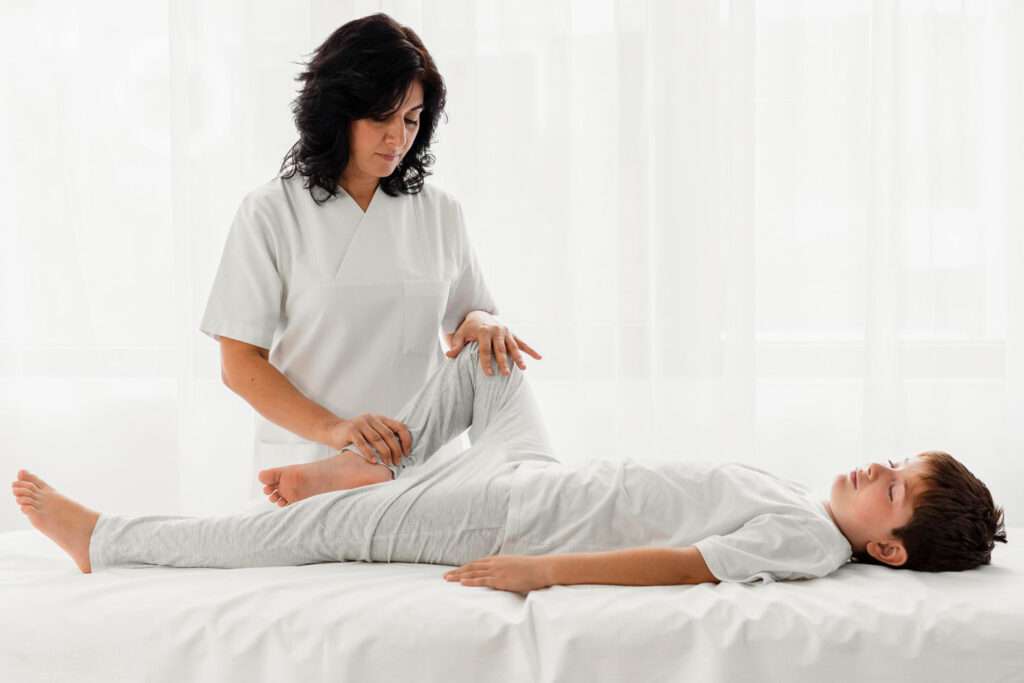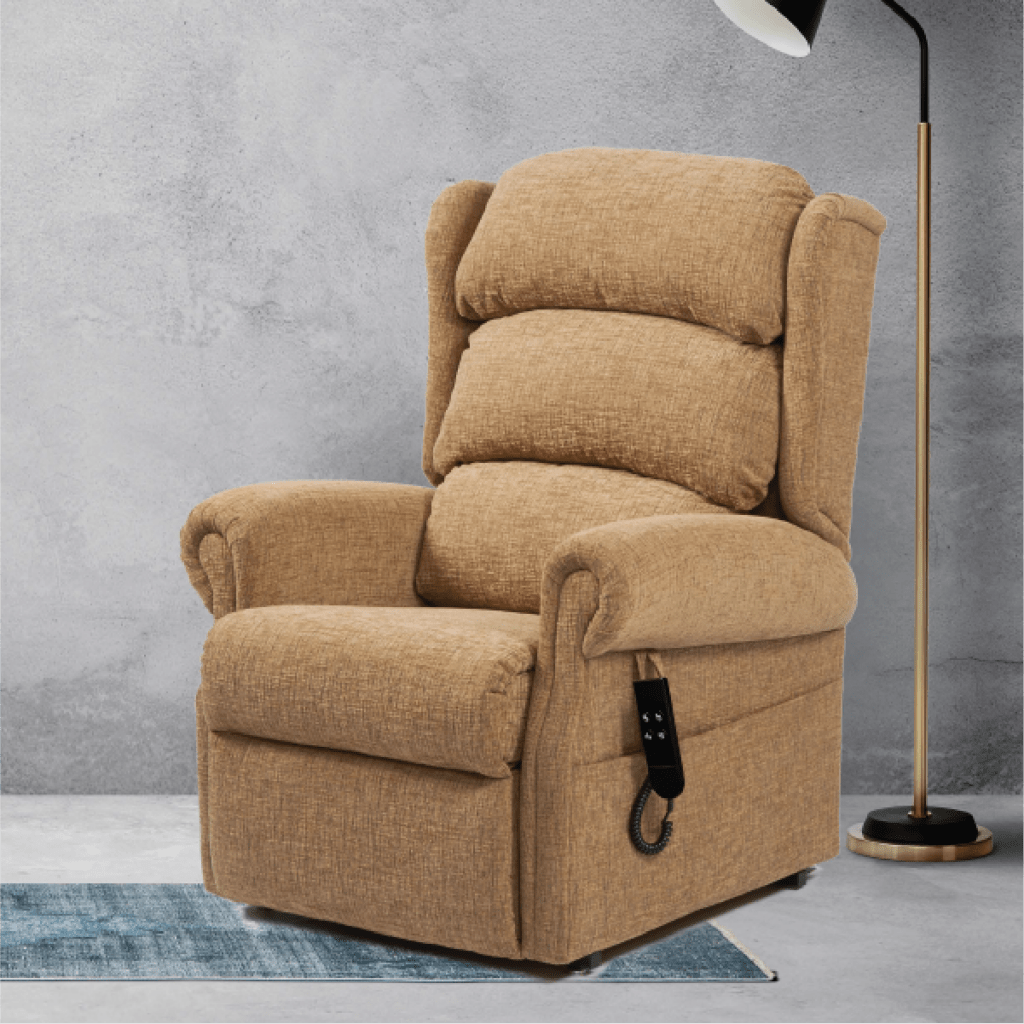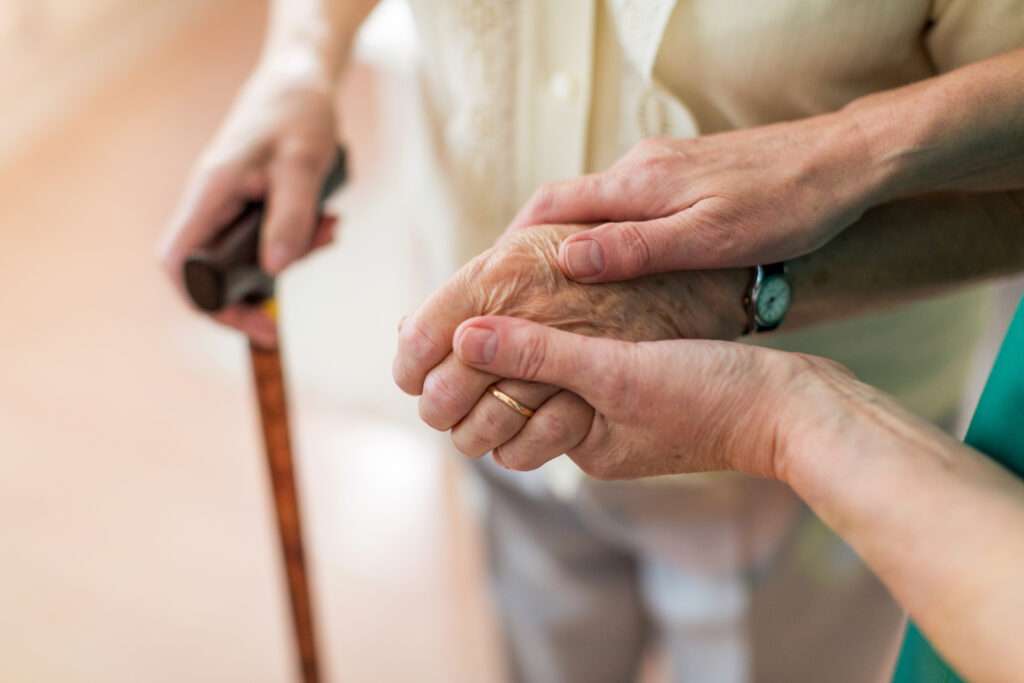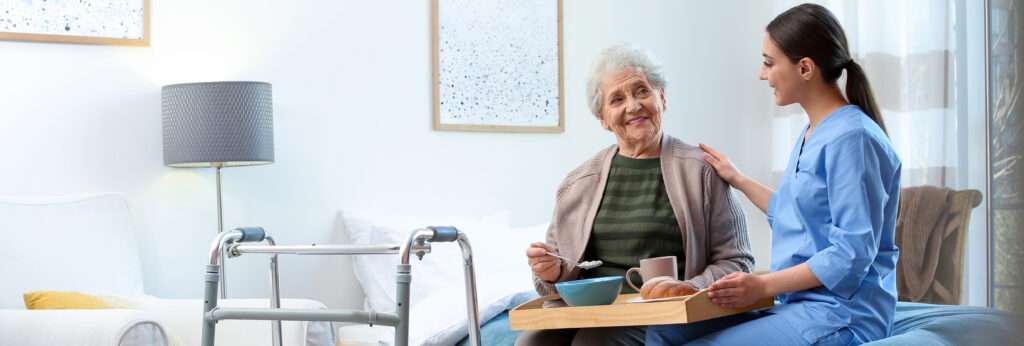In this final article of the series about how seating accessories can help different medical conditions, we look at Medicine for the Elderly hospital wards and how accessories can help there.
Jump straight to...
Common Presentations in Medicine for the Elderly Wards
Medicine for the Elderly wards provide acute care for vulnerable elderly patients. Needs amongst these patients tend to be more complex as they are usually frail and suffering from cognitive decline. The seating used in these wards needs to be sophisticated enough to provide for such patients.
Delirium can feature among patients on this ward, a temporary cognitive dysfunction where the patient is confused and disorientated. It can be brought on by infection or post-operative stress, and the elderly and frail patients are more susceptible to it. It can even be a reaction to certain medications, like corticosteroids which are an anti-inflammatory drug.
Delirium is more a manifestation of underlying problems rather than a condition in itself. It can indicate problems like water infections and sepsis. Usually it only lasts for a short time but if it is extended for any length of time there are various factors of care that need to be considered. Patients will need to be monitored closely and encouraged to move around, although should be supported when walking to prevent falls. Seat restraints may be needed if the patient is at risk of harming themselves or others, or if they need to stay in the chair because of connected IV lines. Restraints should only be used if there is a high risk of harm and the patient should be monitored at least every two hours, as there is a risk of pressure sores developing if they are kept in the same position for too long.
Delirium should not be confused with dementia, which is a general term used to describe loss of brain function. Dementia can show itself in behavioural changes (personality changes, mood disorders) and cognitive problems (loss of memory, loss of problem-solving skills and confusion). Typical physical side effects include incontinence in the more advanced stages of dementia and stroke-like symptoms such as weakness on one side. Alzheimer’s disease is a particular form of dementia that causes the brain to atrophy (shrink in size).
Patients in this ward may be undergoing rehab due to other systemic issues like recovering from falls.
Seating Accessories Available
These are some of the seating accessories that can assist this group of patients with typical symptoms.
Finding the Right Chair
The Chepstow high seat chair is a good hospital chair for dementia patients as it has a removeable seat base so helpful for incontinence. A deep cushion gives a high level of comfort for elderly, frail patients. It is a very functional ward chair with manual height adjustment, housekeeping wheels and drop-down arms.
Our hospital patient rehabilitation chair is a fantastic chair for rehabiliation, with electric seat adjustment. It can be used with standaids like the Sara Stedy, so is great for patients who are trying to improve their level of mobility and need assistance standing.
Conclusion
We hope this article helps you find the right chair and associated accessories for patients in Medicine for the Elderly wards.
If you are looking for more information on how accessories can help patients with these particular needs please contact our team.



